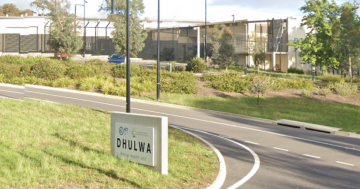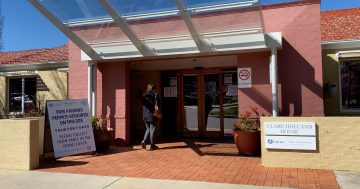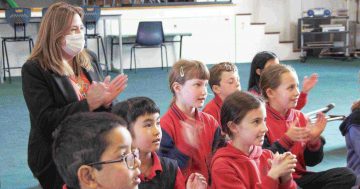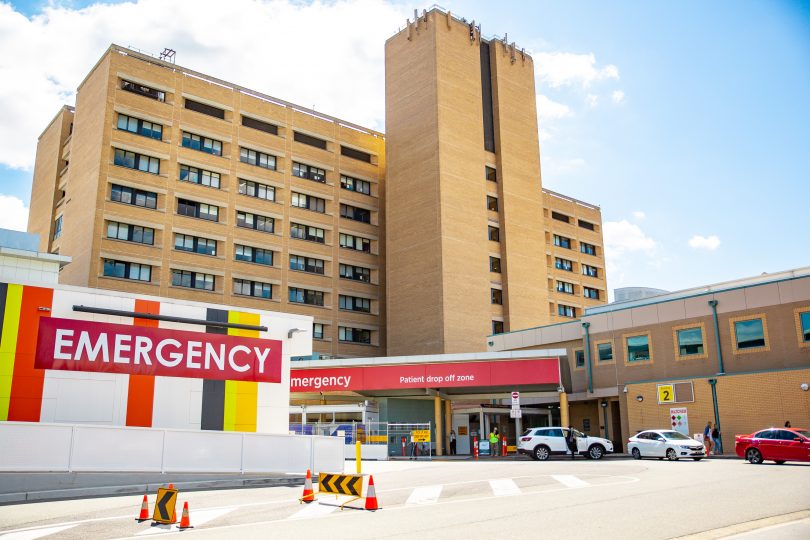
Canberra Hospital: Government has been too slow to respond, says Opposition. Photos: George Tsotsos.
Less than one-third of government health staff have a high level of trust in their executives and feel that there is a climate of trust and respect throughout the organisation, according to a snapshot of the latest culture survey.
The ACT Government was forced to release the high-level snapshot on Tuesday after a hospital staff member passed it on to the Canberra Liberals, who subsequently called a press conference at the Canberra Hospital.
A government spokesperson said the ACT Government had intended to discuss the initial results with staff before going public but the Liberals had forced its hand.
The Canberra Health Services survey, launched last November, also found that 46 per cent of the more than 4000 respondents had been exposed to occupational violence in the last 12 months, while only 44 per cent believed that if they were to report a colleague for bullying or harassment that it would be appropriately managed.
The survey said only 31 per cent of staff thought that the CHS introduced change that was well-planned and client-focused.
But the good news from the survey was that 88 per cent agree that the work they do is meaningful, 87 per cent say they are proud of the work they do, 84 per cent agree that most of their team members know each other well, and 83 per cent of employees feel a sense of pride when the changes they make in their job have good results.
Seventy-nine per cent agree that most of their team members are quick to step in and help each other, and 77 per cent say that managers always take work, health and safety seriously.
Last May the Government announced a three-year program to address issues raised in the Independent Review into Workplace Culture within ACT Public Health Services, led by Mick Reid.
Opposition health spokesperson Vicki Dunne said the results showed that the government had been too slow to respond to the issues revealed in the Reid inquiry and that management was failing to address the issues of trust and occupational violence in CHS.
Mrs Dunne said the staff feedback was that health management did not want to listen and that lip service was being paid to what was really going on.
“Steps are not being taken further up the line against people perpetrating workplace violence,” Mrs Dunne said. “There are problems in all health systems but problems in this health system are substantially worse.”
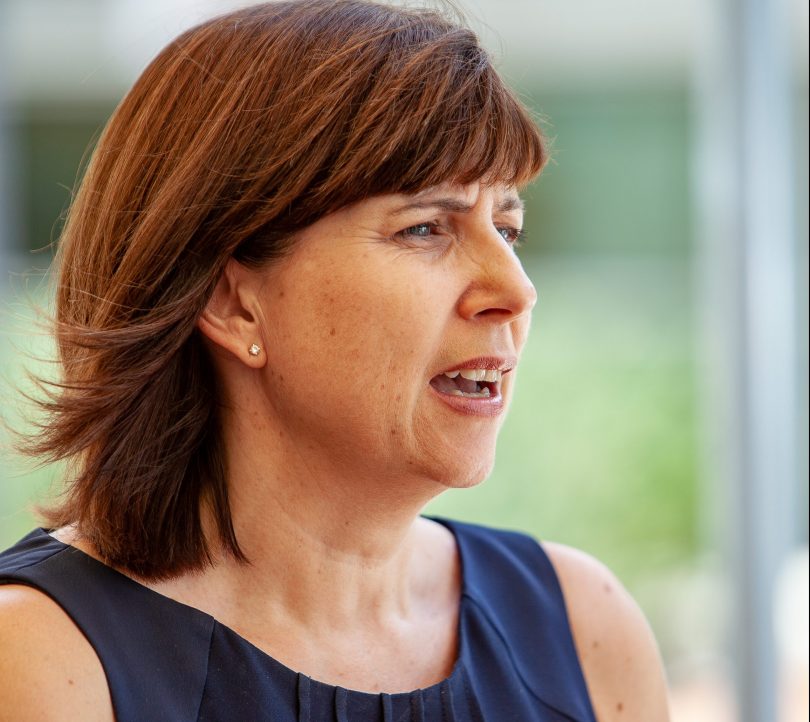
CHS CEO Bernadette McDonald says the organisation is making steady progress.
Mrs Dunne said it was common, for example, for junior staff to be dressed down and humiliated in front of colleagues and the public.
She said the only way to change the situation was to change the government at this year’s October election.
Mrs Dunne’s comments were rejected by Health Minister Rachel Stephen-Smith, and drew a vigorous response from CHS CEO Bernadette McDonald who joined the Liberals’ press conference to rebuff Mrs Dunne’s claims.
Ms McDonald said a long list of actions had been implemented and CHS was making steady progress to turn its culture around.
She said the survey was a big improvement on the previous one in 2015, with engagement up and 51 questions attracting better responses and only six giving a worse result.
“With the information gained we can continue the work we started 12 months ago when I started to focus on creating a positive workplace,” Ms McDonald said.
She said CHS was already seeing a decrease in occupational violence in some areas and staff were feeling a lot safer.
CHS was working closely with the AMA to understand the concerns of junior doctors and exploring the idea of a wellbeing officer to support them.
Both Ms McDonald and later the Minister attacked what Ms Stephen-Smith called the Liberals’ relentless negativity and talking down of health services, and its impact on staff.
Ms Stephen-Smith said the survey results were the best ever and showed that the CHS leadership was responding to staff concerns, citing 16 high-level actions and the imminent rollout of CHS’s occupational violence strategy.
She said building trust would take time and that the measures being taken were part of a three-year work plan.
The survey response rate was its best ever with 4,162, or 57 per cent of staff, participating, and it produced more than half a million pieces of qualitative data.
The more detailed information will not be made public, in part to protect staff, but will contribute to CHS’s ongoing work to address the issues raised in the Reid inquiry.














